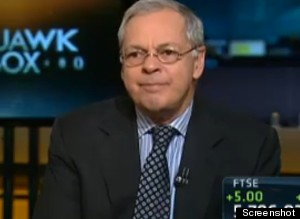In an interview on CNBC Friday, Ed Morse, the head of commodities research at Citibank, was asked if the U.S. would ever again become a net exporter of oil (the country was a net oil products exporter last year, thanks to booming shale oil production).
The U.S. alone is “unlikely to become a net exporter,” Morse said, “but between the U.S. and Canada, we will be an exporter. And I say between ourselves and Canada because the Canadians can’t export their oil anywhere other than to the U.S. and their production is going up steadily every year.”
Morse said Canada essentially has no choice but to sell to the U.S. because “their pipeline politics are worse than ours, they can’t build one to either the west coast or the east coast.”
That Canada is a “captive seller” of oil to the U.S. is becoming clear, as growing capacity in the oil sands has pushed down the price of Canadian oil exports to a roughly 30-per-cent discount compared to West Texas Intermediate (WTI) oil prices. Without new markets, and with booming production coming from alternative extraction methods being put into place in the U.S., Canadian exporters have been unable to maintain market rates for their oil.
But Morse’s assertion that Canada will be unable to build pipelines to either coast because of political controversy is debatable. While British Columbia’s politicians and public are expressing serious concerns about Enbridge’s proposed Northern Gateway project, new proposals that would see western Canadian oil shipped to central and eastern Canada are getting more positive reviews.
While the opposition New Democratic Party has largely been opposed to the Northern Gateway, raising concerns about Enbridge’s safety record, party leader Tom Mulcair recently came out in favour of building a pipeline east. His words have been echoed by politicians of all stripes from Atlantic Canada.
In one of the first concrete steps to ship oil east, Enbridge has announced plans to reverse the flow of a pipeline that runs from the Hamilton, Ontario area to Montreal. While the pipeline currently ships imported oil to the Toronto area, Enbridge is proposing to reverse it and have it ship western Canadian oil east.
Following the Obama administration’s decision to delay a final call on the Keystone XL pipeline earlier this year, the Harper government turned its attention to finding new markets for Canadian oil — particularly China. But without the ability to ship crude to deep water ports, efforts at opening trade with China will not be enough.
Despite the uncertainty surrounding the Northern Gateway and the Keystone XL — which would allow large volumes of oil to move from Canadian oil fields to a massive oil storage hub in Cushing, Okla. — it seems increasingly likely that some sort of pipeline network will be put into place to carry more Canadian crude to the U.S.
At least two other energy companies are planning to augment their U.S. pipeline networks to help carry Canadian oil south, the Wall Street Journal reports.
That’s unlikely to make environmental activists happy, as they seek to minimize demand for Canadian oil sands product, which they describe as the dirtiest fuel source in the world.
A recent analysis from business information company IHS suggested oil sands product is more emissions-heavy than previously thought. The company estimated that Canadian oil emits nine per cent more carbon than oil from U.S. sources, on average.
A recent poll found that Canadians put little faith in the country’s oil industry, considering oil companies to be about as trustworthy as used car salesmen.
Original Article
Source: huffington post
Author: The Huffington Post Canada

No comments:
Post a Comment